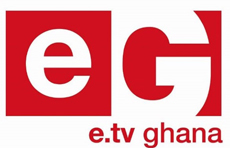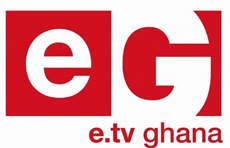The anti- corruption crusader, Mr Martin Amidu, yesterday slugged it out with lawyers for the state and businessman Mr Alfred Agbesi Woyome at the Supreme Court in Accra over the oral examination of Mr Woyome on his assets.
It all began when the Deputy Attorney-General and Minister of Justice, Dr Dominic Ayine, and the lawyer for Mr Woyome, Mr Ken Anku, challenged Mr Amidu’s locus in seeking to orally examine Mr Woyome.
According to the two, Mr Amidu did not have the capacity to file his application to orally examine Mr Woyome under Order 46 of the High Court (Civil Procedure) Rules, 2004 (C.I. 47) because he (Mr Amidu) was not the judgement creditor.
Mr Amidu filed his application to orally examine Mr Woyome under Order 46 of C.I. 47 after the state had filed an application to withdraw a motion to orally examine Mr Woyome.
Rule 1 (1) of Order 46 of C.I. 47 states: “For the purpose of garnishee proceedings under Order 47, where a person has obtained a judgement or order for the payment of money by some other person, hereinafter referred to as ‘the judgment debtor’, the court may, on an application made ex-parte by the person entitled to enforce the judgement or order, order the judgement debtor or, if the judgement debtor is a body corporate, an officer of it, to attend before the court and be orally examined on the questions: (a) whether any debts are owing to the judgement debtor; (b) whether the judgement debtor has any property or other means of satisfying the judgement or order; and the court may also order the judgement debtor or officer to produce any books or documents in the possession of the judgement debtor relevant to these questions at the time and place appointed for the examination.”
Rule (2) of C. I. 47 also notes that “an order under this rule shall be served personally on the judgement debtor and on any officer of a body corporate ordered to attend for examination”.
According to Dr Ayine, Order 46 of C.I. 47 was very clear in stating that it was only the judgement creditor, in this instance the state, that could orally examine Woyome because the money, when retrieved, would eventually end up in state coffers.
However, Mr Amidu shot to his feet and reminded Dr Ayine that the state was a respondent which was indicted in the July 29, 2014 Supreme Court judgement that directed Woyome to refund the money to the state.
Dr Ayine further argued that the state had taken a number of steps to retrieve the money from Woyome.
For instance, on January 8, 2015, the Attorney-General filed a writ of Fifa and renewed it on January 16, 2016 and attached one residential property at Tesano, House No 16B, 6th Street, Tesano, one residential property at Kpehe, two residential properties at Trassaco, Accra, a quarry at Maafi, Volta Region, and vehicles and equipment.
However, interpleaders have been filed by the UT Bank in respect of the two residential properties situated at Trassaco and the one situated at Kpehe, while Anator Holding Company Limited has also filed an interpleader in respect of the quarry at Maafi.
On April 6, 2016, the Attorney-General initiated garnishee proceedings against the managers of ADB, Unibank (Ghana) Limited and UT Bank.
So far, the garnishee has yielded the following amounts: GHc966.58, GHc29,515.95, GHc1,008.70, US$98.17, US$32,779.68, US$223.08 and 1,226.72 euros which have since been paid into the bank account of the Attorney-General’s Office at the Bank of Ghana.
According to Dr Ayine, it was clear steps were being taken to recover the money.
Arguments
Another heated argument ensued when Mr Amidu cut Dr Ayine short in his tracks when Dr Ayine began saying “a lawyer of his repute…”, in reference to what he (Dr Ayine) referred to as scandalous depositions against the Attorney-General and the President by Mr Amidu.
Mr Amidu took offence for that statement, with the reason that he was in court in his capacity as a plaintiff and not as a lawyer.
He said in any case he had not applied for a solicitor’s licence to be referred to as a lawyer.
Clearly unfazed by Mr Amidu’s interjection, Dr Ayine reminded Mr Amidu that he (Mr Amidu) was a former Attorney-General who had once been publicly called to the Bar.
The presiding judge, Mr Justice Anin Yeboah, moved in to calm nerves by urging Dr Ayine to continue with his submissions.
Dr Ayine prayed the court to expunge paragraphs eight to 21 of Mr Amidu’s affidavit in support because it was full of unfounded allegations against the Attorney-General.
He prayed the court to expunge what he termed “scurrilous and unfounded depositions against the Attorney-General, especially depositions that seek to impugn her integrity and suggest she has never taken any step in her bid to recover funds from Woyome”.
According to the Deputy Attorney-General, Mr Amidu’s affidavit in support was full of “inadmissible hearsay evidence”.
For instance, he said Mr Amidu alleged, without any foundation, that the President had directed the Attorney-General to discontinue the application seeking to orally examine Woyome.
He said the Attorney-General had made credible commitment to retrieve the money from Woyome, adding: “We have itemised very carefully the steps taken to recover the money.”
The court
At that point, Mr Justice Yeboah queried why the parties were pursuing the same matter in other courts without seeking leave of the Supreme Court, which ordered the parties to stay all proceedings relating to the Woyome case in the superior courts.
Dr Ayine explained that the state had sought leave of the court to file all processes related to the matter, but the court reminded him that the state should not have entertained other matters related to the case in other courts.
Other matters currently pending before the superior courts are UT Bank’s claim, a suit contesting the judgement debt commission’s indictment of Woyome, as well as Anator Holdings’ claims to Woyome’s other assets.
The Deputy Attorney-General consequently prayed the court to strike out Mr Amidu’s application.
Mr Amidu
Replying the respondents, Mr Amidu said the argument that he lacked locus standi to recover the money amounted to negating the spirit and letter of the 1992 Constitution.
He reiterated his position that the money paid to Woyome was unconstitutional.
He said Woyome was capable of paying the money, adding “he is refusing to pay”.
Publication of documents
Mr Anku later expressed worry over the publication of Mr Amidu’s affidavit in the media before his client received his copy but Mr Amidu said he had referred to only two paragraphs in his statement to the press, adding: “It is a public document once filed. The media published the whole affidavit.”
Mr Justice Anin Yeboah said the court should not be used to malign people, including public office holders.
The date
The court will, on November 15, 2016, give its ruling on whether or not to allow Mr Amidu to orally examine Mr Woyome on his assets.
Displeased with the state’s decision, Mr Amidu applied to orally Woyome in his (Mr Amidu’s) capacity as the plaintiff.
However, lawyers for the state and Mr Woyome opposed Mr Amidu in separate applications.

